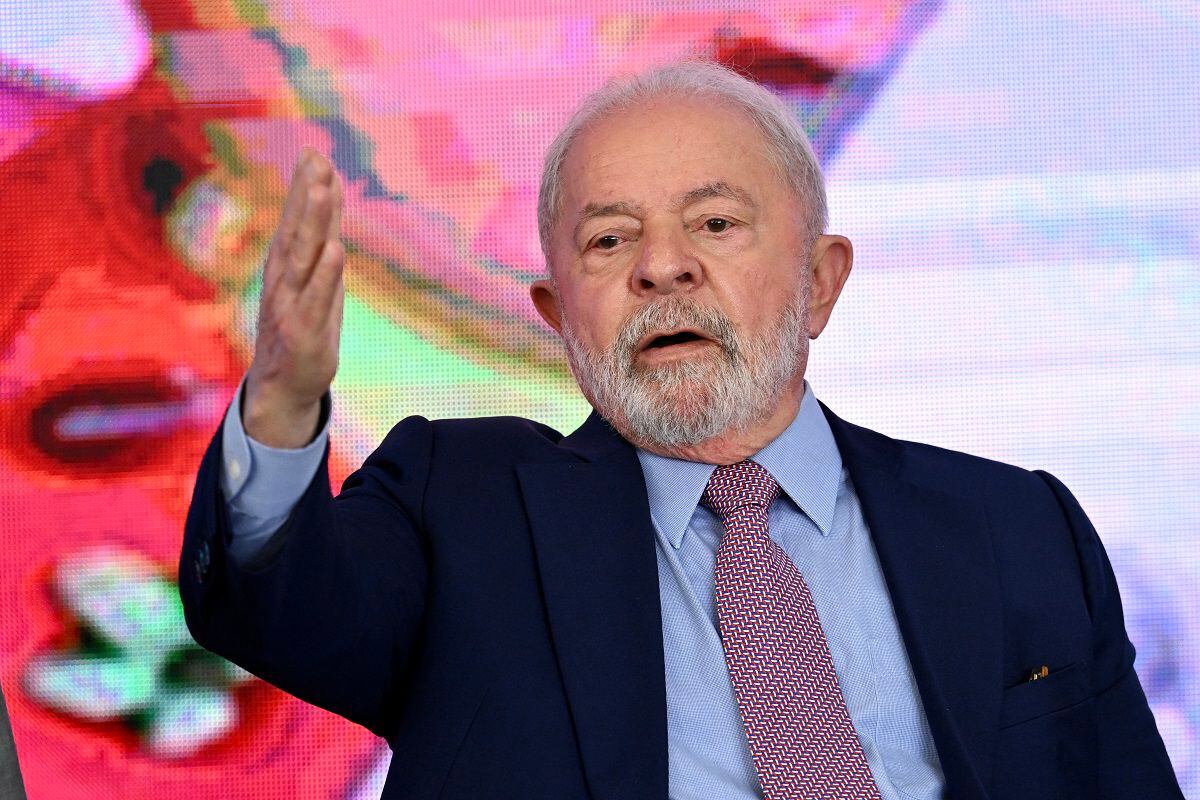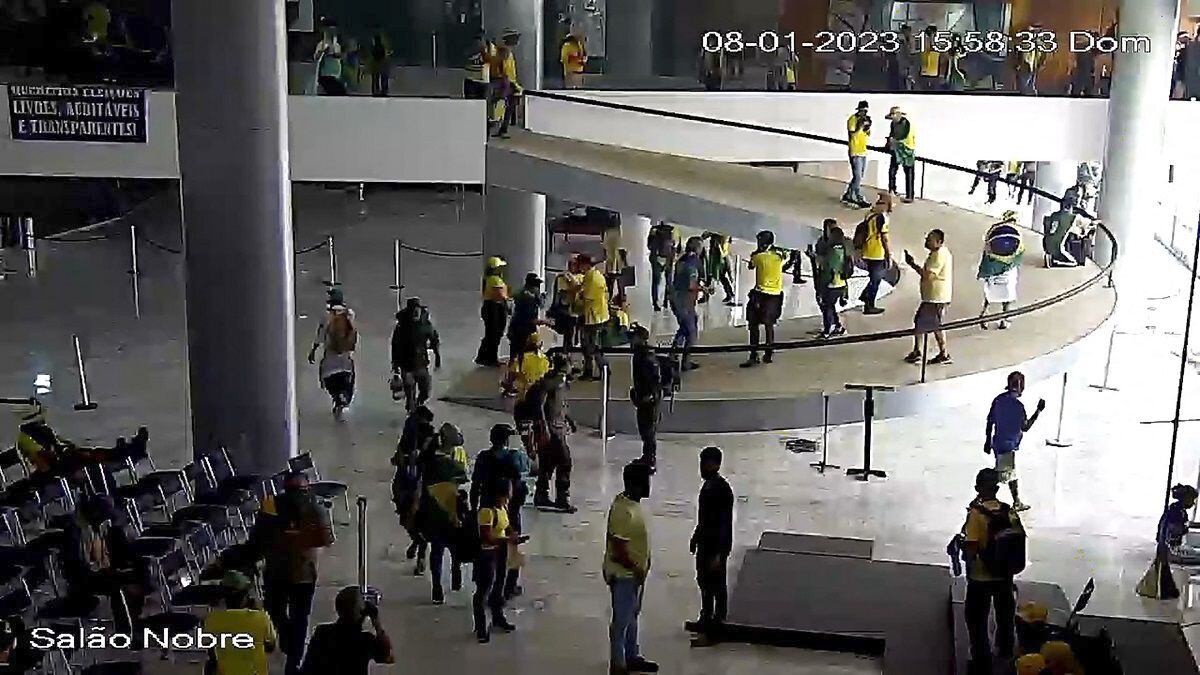In a new chapter of the battle between the Justice of Brazil and Telegram, a federal judge ordered the temporary suspension of the messaging application. The decision, which affected thousands of users of the popular messaging service, comes amid a police investigation into neo-Nazi groups using social media and other Internet platforms to plan violent attacks on schools.
LOOK: Brazilian court orders suspension of Telegram
Specifically, the ruling by a federal court in the state of Espírito Santo, in the southeast of Brazil, indicates that Telegram did not provide all the information that the Federal Police had requested about neo-Nazi chat groups.
According to the document, the Federal Police and the prosecutor’s office had requested from the platform the personal data of all the members of the channels “Brazilian Anti-Semitic Movement” and “Anti-Semitic Front.”
The Minister of Justice and Security of Brazil, Flávio Dino, in a video released by his adviser, explained that justice accepted that the network that is not complying with the decisions, in this case Telegram, “receives a fine of one million reais per day ( USD 198,000) and the temporary suspension of activities”.
Dino announces a fine and suspension from Telegram for not sending complete data on neo-Nazist groups: ????️ “We know that this is based on violence against our children and adolescents” pic.twitter.com/VJxGDoFMpW
— UOL News (@UOLNoticias) April 26, 2023
It is not the first time that Telegram has been subject to a suspension order in Brazil. In March 2022, Federal Supreme Court magistrate Alexandre de Moraes ordered the nationwide suspension of Telegram, alleging that he had not cooperated with the authorities.
The magistrate considered that the company repeatedly failed to comply with judicial orders to combat disinformation in an election year, and did not cooperate with the authorities in the repression of other crimes.
After the blocking order, which did not come into effect, Telegram appointed a legal representative in Brazil and detailed in court its internal mechanisms to combat disinformation.
hate attacks
The measure adopted against Telegram is part of the campaign that the Latin American giant has undertaken against an upsurge in school violence.
The wave of attacks on schools hit the international press in November 2022, when a 16-year-old teenager who wore a swastika insignia on his vest shot four people dead and injured 12 others in the small town of Aracruz, in the state of Espírito Santo. According to the G1 news portal, citing police sources, the murderer interacted with anti-Semitic groups on Telegram.
At that time, Telegram pointed out that there had been a lack of communication and then apologized to the Federal Supreme Court for its negligence in not responding to its requests to provide information. The platform was not suspended.
But the violence has continued. On April 5, four children between the ages of 4 and 7 were murdered in a nursery in the state of Santa Catarina (south) by a man who broke in armed with an axe.
Brazil has registered more than twenty attacks or violent episodes in schools since 2000, half of them in the last 12 months, says the AP agency.
Daniela Neves, a professor at Unila, the University of Latin American Integration, emphasizes that criticism and legal actions against Telegram are based on the fact that it generally does not cooperate with criminal investigations.
“There is also a lack of transparency in user records, which would encourage the sharing of content considered criminal, such as promoting violent attacks on schools that have occurred in recent months in Brazil. The attack on a school in Espírito Santo, with deaths, was what generated this week’s judicial decision,” the analyst told El Comercio.
The government of President Luiz Inácio Lula da Silva responded to the latest episodes by announcing measures to force social media platforms to combat content and profiles that promote or advocate attacks against schools. He also intensified his campaign for a new law to regulate the activity of the platforms, currently under debate in Congress.

The Bolsonaro factor?
The attacks on schools and the actions against Telegram are also part of a broader debate about intolerance and the proliferation of speech that fuels hate and violence.
For Neves, rivalry and hate speech have had more space in Brazil since the 2018 presidential elections, where a political group that defends the possession of weapons and far-right positions had a change.
“The growth of more radical groups has been encouraged. Polarization to extremes is never beneficial for democratic environments and healthy civility. Whenever there is a political leader who encourages acts of violence, makes gestures such as holding a weapon, has a homophobic, xenophobic, misogynistic discourse, in any part of the world it leads to the growth of extremist groups, such as Nazism”, warns the expert.

Right-wing former President Jair Bolsonaro and his allies encouraged their followers to use Telegram after January 2021, when former US President Donald Trump was permanently suspended from Twitter following the January 6 storming of the Capitol.
In fact, in the same style as Trump supporters, Bolsonaro supporters tried to take over the offices of the Brazilian state powers in January of this year.

In this context, Neves highlights that there is strong pressure from both the Judiciary and the Executive Branch to control hate content within social networks and messaging apps such as Telegram. “The coup attempt on January 8 and the attacks on schools in recent months are pushing for greater control and joint responsibility of the companies that own these apps,” she concludes.
Source: Elcomercio
I am Jack Morton and I work in 24 News Recorder. I mostly cover world news and I have also authored 24 news recorder. I find this work highly interesting and it allows me to keep up with current events happening around the world.

:quality(75)/cloudfront-us-east-1.images.arcpublishing.com/elcomercio/72TOZMBO5ZHIZPZLNK4SIB5LLY.webp)

:quality(75)/cloudfront-us-east-1.images.arcpublishing.com/elcomercio/B3NQD5KCQNASBKCQBPS55KEHSI.jpg)

:quality(75)/cloudfront-us-east-1.images.arcpublishing.com/elcomercio/M3B4ABO36ZCYRCHQRU6CFMWRHM.jpg)
:quality(75)/cloudfront-us-east-1.images.arcpublishing.com/elcomercio/5QHXBF3WQFDJRAZZVWS3C6DV4M.jpg)
